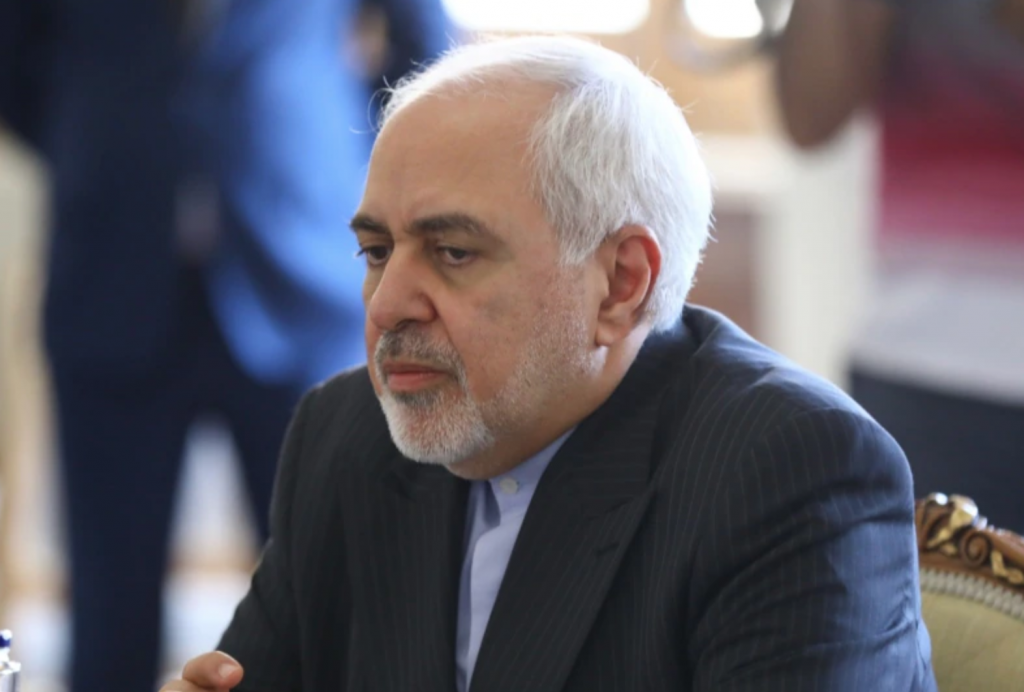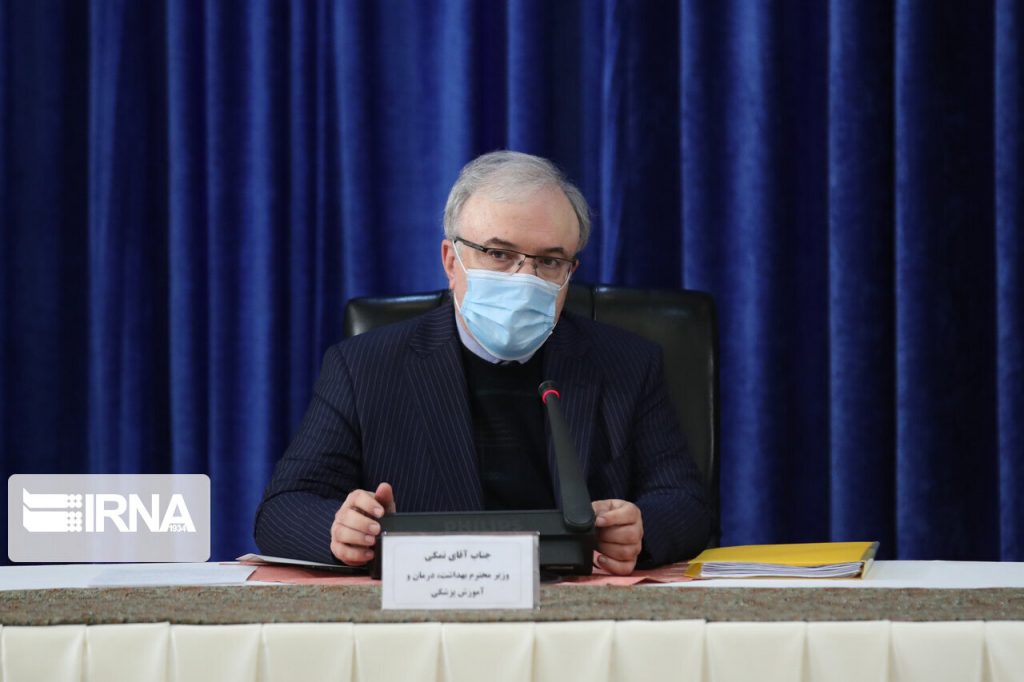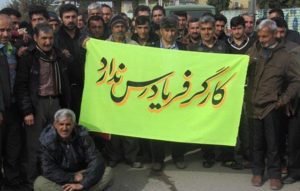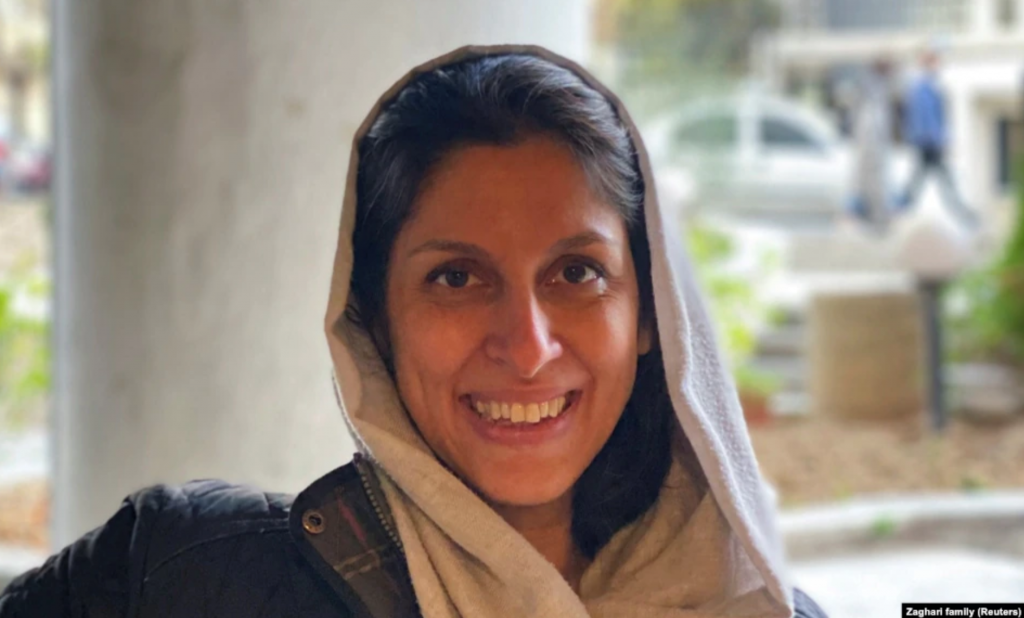
End of Ghalibaf’s Honeymoon
The editorial of Arman Melli emphasizes that the letter signed by 220 lawmakers and presented to the head of the judiciary Ebrahim Raisi inviting him to run for presidency should put an end to Ghalibaf’s hope for becoming the next president.
Parliament speaker Mohammad Bagher Ghalibaf is one of the likely candidates to run for the presidency in the upcoming election. Yet 220 lawmakers asking Ebrahim Raisi to run for the presidency was a strong blow against Ghalibaf as a potential candidate. On the other hand, this letter, backed by the majority of lawmakers, is a sign that if Raisi decides to run and becomes the next president, the Parliament will be in line with his government.
The demand of 220 lawmakers for Raisi to run for the presidency changes everything for the “hardline principlists,” in case Raisi decides to resign from his current position to run for the presidency. If he decides to enter the presidential race, the “hardline principlists” will finally reach a consensus over which candidate to endorse in the upcoming presidential race.
But as for the “reformists,” they must consider the fact that under these circumstances, it makes no sense for them to nominate a candidate. If the “reformists” endorse a candidate and he wins the election, can he do anything under these conditions with the deteriorating economic conditions, coronavirus, half-finished nuclear deal talks, and lingering sanctions?
Let’s suppose that even former President Mohammad Khatami decides to run again and wins the election. Khatami who won the election with the slogan of political development couldn’t even protect the very newspapers that helped him win the election and they were randomly closed.
The message of the lawmakers’ letter is addressed not just to Ghalibaf but also to the “reformists.” The “reformists” must receive this message and allow the “hardline principlists” to form a unanimous government. As such, the “principlists” might make a commitment to the Iranian people to resolve the issues and problems that society is wrestling with.
Political Obstruction, Economic Stalemate, and Daily Life
The editorial of Jahan Sanat argues in favor of the efforts of Rouhani’s government to negotiate with the United States for lifting sanctions, stressing that if the current conditions continue, the Iranian people will have to pay the price for the economic stalemate in the country.
Critics of Rouhani’s government keep denouncing it for having no plans in the field of the economy, and some of their criticisms are justified. The critics’ mantra is that the government has put all its eggs in the basket of lifting the sanctions, instead of focusing on domestic resources.
It is right to say that the government is completely focused on lifting of sanctions and how this will impact the macro-economy. But under the current circumstances, it seems that the government’s calculations are more accurate that the critics. In the short-run, lifting sanctions will allow the government to inject $20 billion to $40 billion of Iran’s revenues – which are blocked in other countries – into the economy.
Furthermore, if the sanctions are lifted from Iran’s economy, millions of barrels of reserved oil can be rapidly exported, and its revenue can be used in resolving part of the economic problems. If big companies are persuaded that the agreement will not be undermined by either Iran or America, they will return to Iran and their investments will lead to economic growth and more jobs.
Critics of Rouhani’s government call all the benefits of lifting sanctions just wishful thinking and an illusion. They argue that sanctions will not be lifted soon, because that requires Iran making commitments that are against the country’s independence from the West and its anti-Americanism. That is why they say that the government must focus on domestic resources.
But the critics are wrong. No currency, financial, production or trade resources are left in Iran. For more than three years, investment growth has been negative. Citizens’ purchasing power has deteriorated. Businesses owners have no motivation to make new investments.
This situation can turn into a full stalemate which wouldn’t leave any space for the next government to economically breathe. As a result, the citizens will be crushed in this chaos and confusion.
Iran’s Economy, Hostage of Politics?
The editorial of Arman Melli explains how Iran’s economy is hijacked by the “hardliners” and used in advancing their policies.
Iran’s economy is dominated by politics, and in so far as the “hardliners” are in charge of the economy, it is not possible to stop liquidity growth and decrease the inflation rate. That is because the “hardliners” are against the world and have the economic power. Moreover, they have taken Iran’s economy hostage to advance their foreign and domestic policies.
Right now, just as Iranian negotiators are holding talks in Vienna, instead of helping them, the hardline media are slamming the negotiations. The “hardliners” are the ones who have created these conditions in the country because they don’t have adequate knowledge and merely try to ideologically deal with the economic problems. The economic problems, however, require scientific solutions.
Today, the doors of the country’s economy are closed to the world. The officials, nonetheless, do not feel the pressure of inflation because they have a lot of money and live in their own luxury apartments in the best neighborhoods in Tehran.
The way of thinking – which exists particularly among the “hardliners” in the Parliament – doesn’t care about liquidity and inflation, which results in pumping more money into the economy and creating more inflation. And those in charge are not aware of this fact. They do not accept the science of economy, nor do they interact and compromise with the world. Incidentally, their own children live in the best places in the world.
Increasing the government’s expenses will impact the inflation rate and will put pressure on low-income groups. Under these circumstances, the rich become richer; the poor become poorer.
Inflation will not be controlled by saying prayers or chanting slogans. If the government’s expenses and liquidity are not scientifically controlled, the current conditions will continue.
Why Does the Iranian Government Pocket People’s Money?
As people who have lost their money in the Iranian stock market have taken to the streets to protest against the government, the editorial of Arman Melli highlights the government’s measures that result in pocketing people’s money to compensate for its budget deficit.
When people lost their money after investing in financial institutions, Hassan Rouhani’s government – which according to the then head of the judiciary Sadegh Larijani had a debt of 37,000 billion tomans – explicitly said on television that to prevent the spread of people’s protests, it had paid this money to those who were defrauded by these institutions.
Now for the second time all officials – from the president to ministers – unconditionally backed investing in the stock market. They told people to invest in the stock market instead of gold or currency markets; told people not to look at the stock market in the short-run; told them not to listen to the opponents of the stock market. As such, they endorsed this market, encouraging all to invest in it. Thus, according to the media, more than 50 million people have invested in the stock market.
It means that if we suppose that the country consists of 30 million households, almost two individuals from each household have invested in the stock market, hoping that this market is a safe place for making investments.
Now that the stock market is going down, we must look at the issue from two perspectives: from the legal viewpoint, the government has a civil responsibility to compensate people’s loss. If a court looks at this issue fairly, the government must pay damages to those who invested in the stock market after the officials’ unconditional endorsement of it. From the viewpoint of criminal law, whoever encourages another individual to invest in companies which will result in the loss of his capital, he must be held responsible for it.
It has been said that the 50 million people who invested in the stock market have lost half of their money.
The government has benefited from these investments in two ways: first, from getting the due taxes from transferring shares in the stock market. Second, the government had created a false market around its companies thus raising the prices of their shares.
Ordinary people sold their household furniture to invest in the stock market; there were workers who sold their motorcycles to invest in this market. In the first few months, they reaped the benefits, but the market suddenly collapsed and now they have turned into the opponents of the government.

FM Zarif’s Leaked Audio File Sparks Fierce Controversy in Iran

In a recently leaked audio file, Foreign Minister Mohammad Javad Zarif divulges Qassem Soleimani’s compelling role in Iran’s foreign policy and the way he forced Zarif to “sacrifice diplomacy” for the military field. Zarif also lambasts “one group” in the country for making obstacles for Iran-US negotiations, saying they have thrown Iran “into a deep hole and that is the nuclear hole.”
This three-hour audio file – which was not supposed to be made public until after Rouhani leaves office – contains an interview with Zarif conducted by an economist close to Rouhani’s government for an oral history program, and its leaking has now fueled a major controversy. Zarif has not only been summoned to the Parliament but a lawsuit has been filed against him by the Tehran Prosecutor’s Office.
In the interview, Zarif emphasizes that Soleimani was an obstacle to diplomacy and that he actually orchestrated Zarif’s negotiations with foreign officials, including his Russian counterpart Sergei Lavrov. Zarif adds that it was under Soleimani’s pressure that “I sacrificed diplomacy for the military field.”
Iran’s Foreign Minister also asserts that he and Soleimani did not see eye to eye over some issues, but he could not convince Soleimani to change his views. “For example, if I said, don’t use Iran Air flights from Tehran to Syria, he wouldn’t accept it. Much of the diplomatic expenses that we paid was because the military field was our priority.” Zarif also urges the interviewer not to ever publish this part of his statement.
Zarif then talks about Soleimani’s role in “destroying the Foreign Ministry’s achievements” by his trip to Russia, adding that Russia did its best to block the JCPOA from coming to fruition.
Zarif also states he was kept in the dark about the IRGC’s regional activities and Israeli attacks on Iranian targets in Syria. “It was [John] Kerry who informed me that Israel has attacked you [Iran] 200 times in Syria.” He added that he had no idea about Iran’s attack on Ain al-Assad base in Iraq either, saying the United States heard it before him.
Following the publication of Zarif’s statements, Iran’s government spokesman said President Rouhani has ordered the Intelligence Ministry to investigate how this file was leaked. Moreover, the ultraconservative Kayhan daily, close to Ali Khamenei, condemned the interview by using this headline on its cover page: “Zarif’s Suicide.”
Coronavirus in Iran: Concerns Over Entrance of Indian Variant, Slow Process of Vaccination

While the number of COVID-19 patients and deaths has overwhelmingly climbed in Iran, a number of officials say the Indian variant will be definitely entering this country soon.
“We should be expecting this virus to enter the country although we have had no reports in this regard yet,” noted Kianoush Jahanpour, a Health Ministry official. Ali Reza Raisi, the Deputy Health Minister, also predicted that Iran would end up like India. The Interior Minister has reportedly banned the transfer of passengers and goods to and from India and Pakistan until further notice. However, some Iran-based media have raised doubts about it.
Meanwhile, none of the authorities’ claims and promises about a public vaccination drive have been fulfilled up to now and Iran lags far behind its neighboring countries in this respect. At least 1 million Iranians were supposed to be vaccinated by the New Year (March 21), while only 700,000 doses of vaccines have been given so far.
Conditions in hospitals are worsening as well. Head of Imam Khomeini Hospital remarked that more than 20 wards of this hospital have been dedicated to COVID-19 patients. “We used to treat coronavirus patients easily, but now due to overcrowding and lack of beds, these patients are dying,” he noted. Moreover, Payam Tabrasi, who is a member of the National Coronavirus Headquarters, stated that all ICUs and hospitals will be filled in the next two months and “we will be witnessing a death toll rise.”
In the midst of such a crisis, however, Iran’s Health Minister Saeed Namaki has claimed that his country is ready to help India in combating the coronavirus surge. In a letter to his Indian counterpart, Namaki offered “technical, expert and equipment help.”
15 Worker Groups Protest Against the Government’s Economic Policies

On the threshold of International Workers’ Day (May 1), 15 Iranian worker unions and groups issued a statement protesting against the economic and social policies of the Iranian establishment and government, calling them the root cause of workers’ “increasing poverty.”
The statement points to the spread of coronavirus, slamming the Iranian government for its lack of effective health policies and for not enforcing mandatory quarantine. It asserts that this has added fuel to the “livelihood crisis of the poor.” The incompetence of the government in confronting the coronavirus crisis, the statement stresses, as well as its economic and social policies, has resulted in increasing poverty, unemployment, and discrimination.
Referring to the impact of the coronavirus crisis on workers’ lives, the statement asserts that since the outbreak of COVID-19, “70 percent of women workers have been sacked and have lost their jobs.”
According to the latest report of the International Monetary Fund (IMF), the rate of unemployment was 11.2 percent in Iran last year, and it will reach 11.7 percent this year. The same report adds that the rate of inflation in Iran is expected to reach 39 percent this year.
The statement cites such statistics, underscoring that while the poverty line for an Iranian household residing in big cities must be at least 12 million tomans, the Iranian government doesn’t care about adjusting the minimum wage.
The statement recognizes the movements of teachers, retirees, students, and women that are fighting against the brutal policies of the government and the establishment in different ways.
At the end, the statement stresses on the necessity of strikes, solidarity in protests, and creating free and independent worker unions as an inalienable right of all workers.
Nazanin Zaghari Sentenced Once Again to Imprisonment and Banned From Leaving the Country

The lawyer of Nazanin Zaghari, an Iranian-British woman whose five years of imprisonment on charges of espionage finished in March, announced the issuance of another sentence against Zaghari of one year imprisonment and a one-year ban from leaving the country.
Zaghari’s lawyer Hojat Kermani said this verdict was handed down to her on charges of “propaganda against the Islamic Republic of Iran.”
In 2016, at the end of a trip to Iran to visit her family, Nazanin Zaghari was arrested at Tehran airport on charges of espionage – charges which she has repeatedly refuted.
After five years, she was released in March 2021, but immediately new charges were brought against her under “propaganda activity against the establishment” by taking part in an assembly in front of Iran’s embassy in London in 2009 and being interviewed by BBC Persian at that time.
Zaghari’s husband has said again and again that his wife is being used by Iran as a hostage in negotiations with the British government over financial issues.
Iran has used arresting dual national citizens and charging them with espionage to achieve its goals against other countries – a trend that has considerably increased in the last decade.
Some of these individuals were swapped with Iranian prisoners overseas, and some were used as political leverage.
